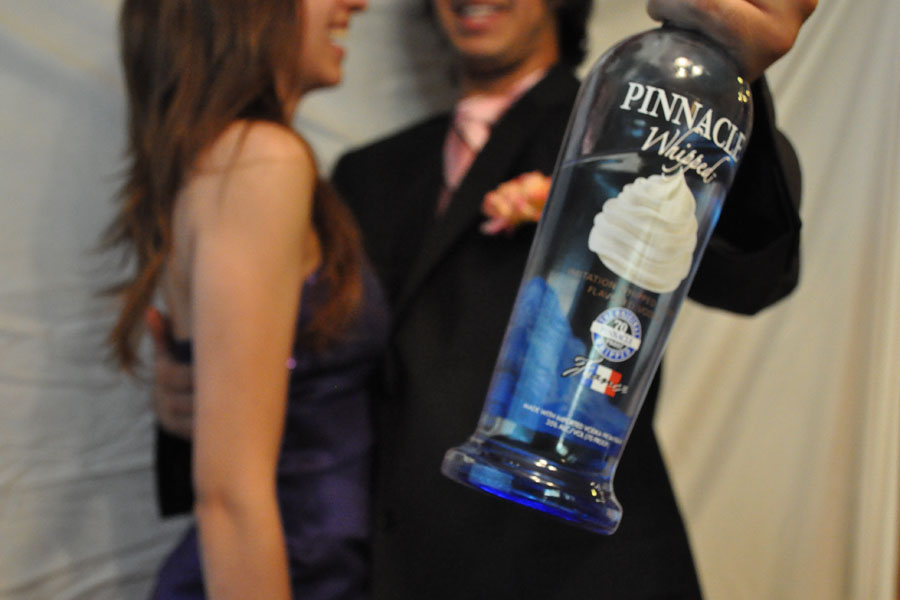Events such as New Year’s Eve, Fourth of July, along with many more, are known for the amount of alcohol consumed before, throughout, and after the event. With prom around the corner, the late spring has historically been a time where high school students find themselves in situations where they have to make a choice: to drink or not to drink.
For those who chose the former, not only are they breaking the law, but they are also putting themselves – and potentially others – at a serious health risk.
The Statistics
According to the Gilbert Police Department, there were 143 DUI arrests and 478 Underage alcohol violations in 2012. There were specifically 107 violations in May-the typical month of prom.
Prom night is known to be a night where high school students illegally consume alcohol after, and sometimes before, the actual dance.
According to the U.S. Department of Health and Human Services, in 2010, about 10.0 million persons aged 12 to 20 (26.3 percent of this age group) reported drinking alcohol in the past month. Approximately 6.5 million (17.0 percent) were binge drinkers, and 2.0 million (5.1 percent) were heavy drinkers. The rate for binge drinking was lower than that obtained in 2009 (18.1 percent).
A Ripple Effect
Like many other high schools, PHS has had its share of students being caught drinking before a dance, or even before school.
“We’ve caught students here before under the influence of alcohol in class,” Principal Dan Serrano said, “I think if a kid wants to get alcohol, it’s relatively easy, I don’t know how students do it, but I don’t think it’s too difficult if you really want it.”
In a situation where a students is under the influence on campus, nurse Juleen Barth, says,
“I’m here to evaluate the student, then referring them to the principal, [afterwards] we contact their parents, and if it’s severe, they need to have emergency treatment or see their physician.”
The nurse also notifies the counselor so the student can seek help.
When counselors are faced with a student who has drank alcohol before, the risk comes in a ripple effect.
“If you are willing to take the risk to do something you’re not supposed to be doing, then you’re probably willing to take risks in other behaviors, and it will eventually add up,” junior counselor Kirsten Gregg said.
Gregg mentions that a student’s behavior also depends on who they surround themselves around, and what kind of behavior they surround themselves with.
“It’s basically poor-decision making and repeated poor decision making,” Gregg said.
According to the PHS student handbook, if any student are caught in possession of alcohol or is intoxicated at school, at school-sponsored events, and school-sponsored transportation, it can lead from suspension, to expulsion, along with a police report.
The New Bus
A growing trend across the Valley seems to be high-schoolers teaming up to rent a party bus, where students allegedly find ways to drink while on the road, before and after the dance. Although many transportation companies provide coolers or other refrigeration units for those who do drink, Mazzeo Limousine owner, Stephen Mazzeo, says his Scottsdale-based company has its own regulations when it comes to chauffeuring teens for an event like this.
“We check everyone to make sure there is no alcohol,” Mazzeo said. “If we see any form of alcohol, or if we don’t see it and kids end up being drunk, we take them back to the location we pick them up.”
Although underage drinking is illegal, it is not the transportation company’s responsibility to call the police.
“We notify the parents so they know why we are taking the kids back,” Mazzeo claimed.
If the police do get involved, Mazzeo says that the police “deal with the kids.”
Once the night of the dance arrives, Administration is prepared to take action once the students get the venue, along with the police officers that will be accompanying them.
“Those party buses are the first thing we look at and the police look at,” Serrano mentions, “It’s not too hard spot when a kid has been drinking, [and] if we suspect something we will crack down on it.”
Although the best way to avoid trouble is to not drink in the first place, Gregg expresses, “If [students] want to make adult-decisions, they have to deal with the adult consequences.”



